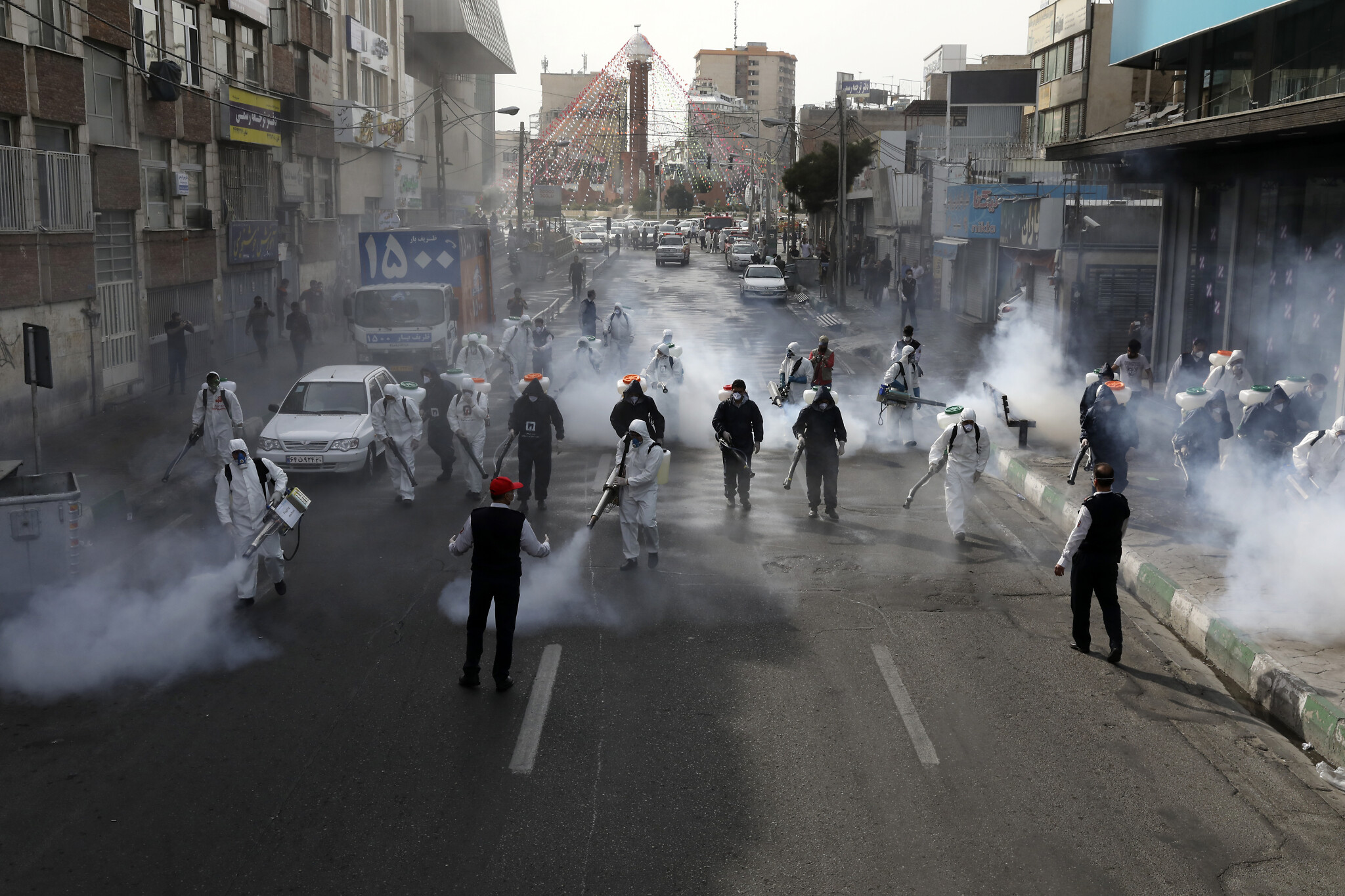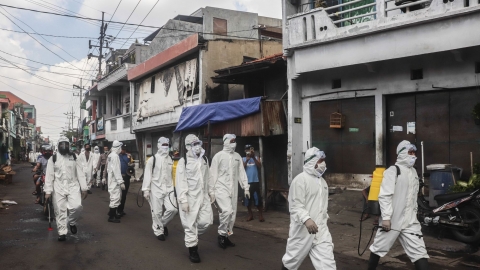Vietnam: 12 days without new community transmission cases.
As of this morning, Vietnam has reported no new cases of Covid-19. Currently, 6 patients have tested negative for the SARS-CoV-2 virus two or more times, and 8 patients have tested negative once.
As of 6:00 AM on April 16th, Vietnam has recorded no community transmission cases. The total number of cases remains at 270, of which 130 are imported from abroad.
A total of 222 patients have recovered and been discharged from the hospital. 48 patients remain under treatment at 8 medical facilities, including 3 suspected cases who tested positive again: patient 74 (in Phu Tho), and patients 207 and 224 (in Ho Chi Minh City). These patients have been transferred to specialized Covid-19 treatment hospitals for continued monitoring.
Hanoi plans to ban non-essential shops from opening before 9 AM.
During the meeting of the Steering Committee for Covid-19 prevention and control on the afternoon of April 27, experts and leaders of Hanoi assessed that the city is facing a risk of disease spread due to the high density of vehicles during the morning rush hour; especially when vehicles stop at red lights, it is impossible to maintain a 1-meter distance.
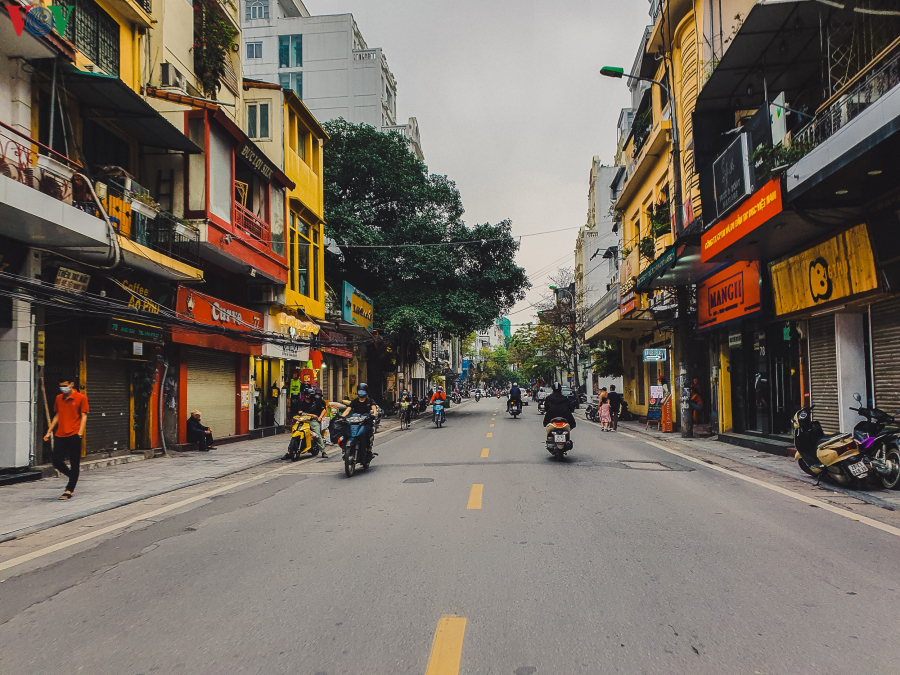
To ensure disease prevention, Hanoi plans to regulate that non-essential businesses such as fashion and cosmetics stores can only open from 9 am, with no restrictions on closing time in the evening. The city expects to implement this measure until December 31, 2020, after which it will review its effectiveness in social distancing and reducing traffic congestion.
Japan allows the use of Ebola drugs to treat coronavirus.
The Japanese Prime Minister said the government expects to soon approve the use of the antiviral drug Remdesivir in the treatment of patients with Covid-19.
Remdesivir, developed by the American pharmaceutical company Gilead Sciences, is a drug that was originally researched for the treatment of Ebola. An international team of scientists has conducted clinical trials of Remdesivir on a number of COVID-19 patients with severe symptoms and is expected to publish the results this month.
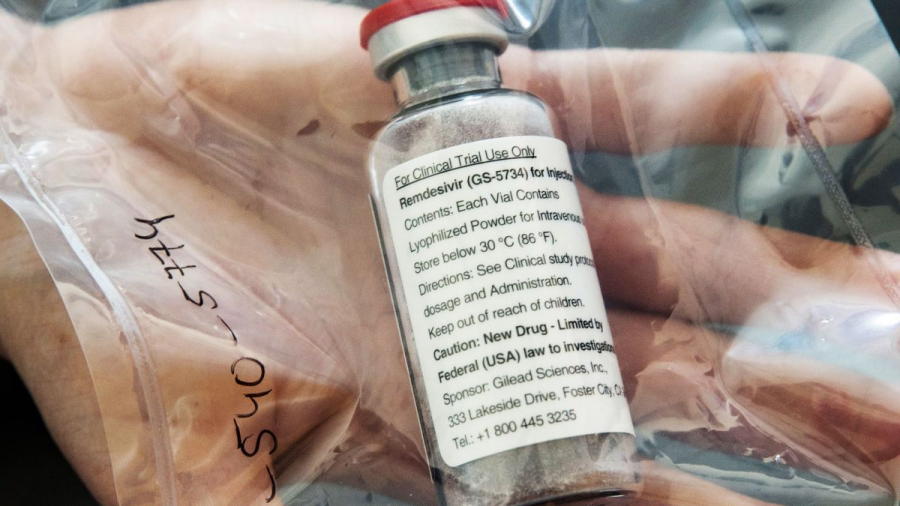
On April 27, the Japanese Prime Minister also announced that Japan would add 14 more countries to its list of those temporarily banned from entering the country for foreign nationals. The ban will take effect from April 29.
Thailand has banned flights until the end of May.
The Civil Aviation Authority of Thailand decided on April 27 to extend the ban on all flights to the country until the end of May, despite signs of a decrease in Covid-19 cases.
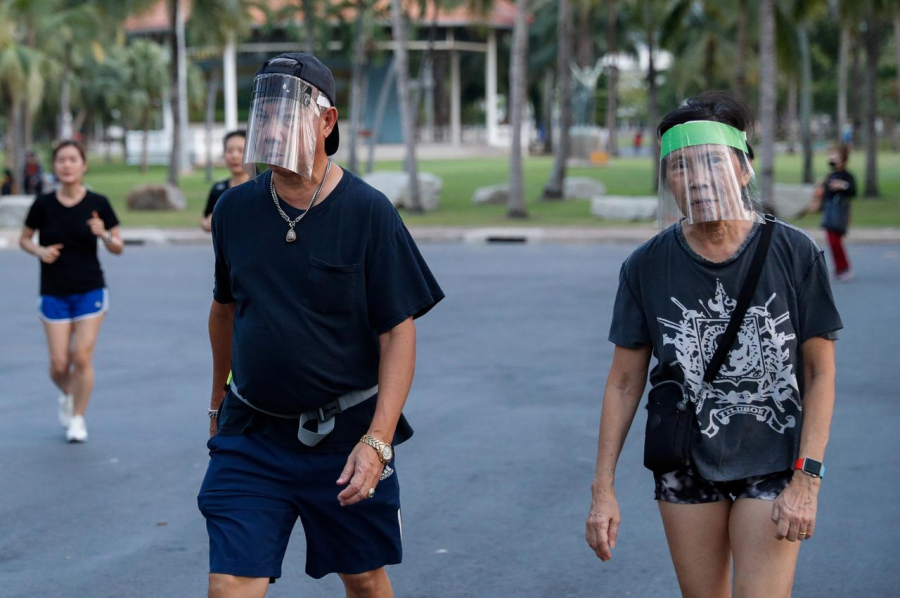
On April 27, Thailand recorded no community transmission cases in Bangkok for the first time.
This extension will affect plans by international airlines to resume commercial flights to Thailand. State-owned aircraft, military aircraft, aircraft forced to make emergency landings, and flights carrying relief supplies, medical aid, humanitarian assistance, repatriating Thai citizens, and cargo will not be affected.
Several more countries are easing lockdown measures.
In Iran, a COVID-19 hotspot in the Middle East, the Ministry of Health announced that the country has recorded 5,806 deaths, an increase of 96 from the previous day. Meanwhile, the number of new infections was recorded at 991 cases, the first time in over a month that the number has fallen below 1,000.
Iran has begun easing restrictions, allowing shops to gradually reopen and lifting travel restrictions within the country starting April 11. However, schools, mosques, cinemas, and other public places remain closed.
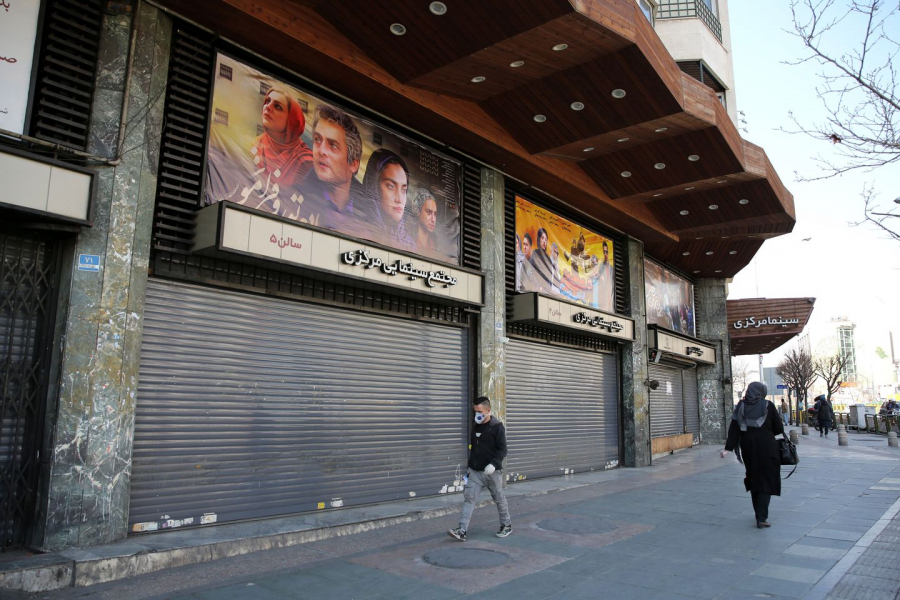
The total number of confirmed Covid-19 cases in Iran currently stands at 91,472.
In Spain, according to updated figures released by the Ministry of Health on April 27, the country has seen 100,875 patients recover, an increase of 2,144. Meanwhile, the number of deaths also increased by 331, reaching 23,521. In addition, Spain also detected 1,831 new cases of Covid-19, bringing the total number of infections to 209,465.
The country is gradually easing the lockdown measures imposed to prevent the spread of the disease. Factories and companies are beginning to reopen. Additionally, on April 26th, for the first time in six weeks, Spanish children were allowed to leave their homes for walks.
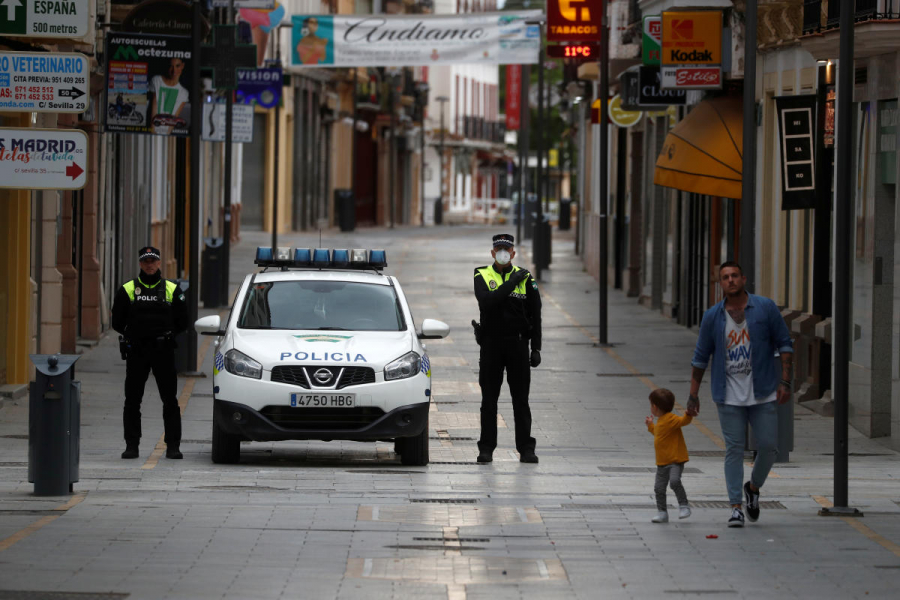
In a separate context, New Zealand Prime Minister Jacinda Ardern declared victory in the fight to contain the spread of the novel coronavirus, as the country recorded only one new case on April 27.
New Zealand has begun easing lockdown measures, allowing some businesses to reopen and people to go fishing and surfing for the first time in over a month, according to Reuters.
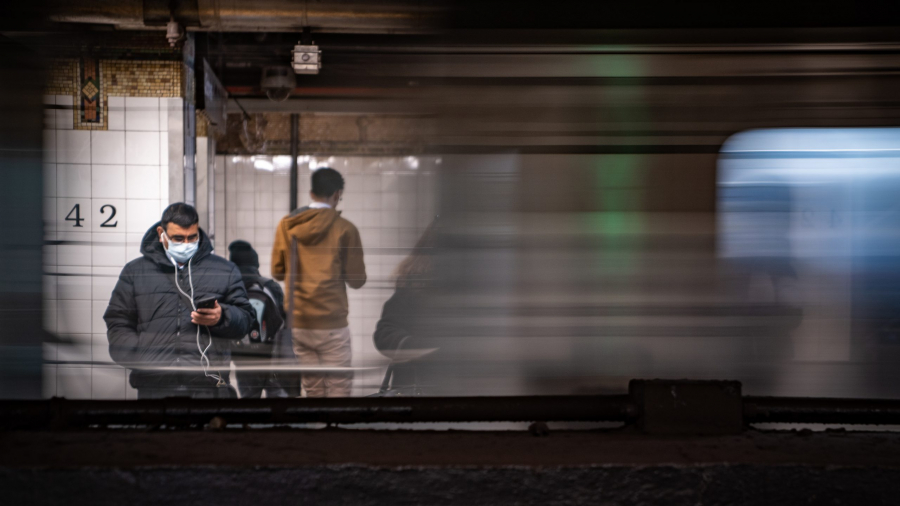
However, many social distancing measures remain in place, and many shops and restaurants will continue to be closed. "We are opening the economy, but not people's social lives," said Ms. Ardern.
Russia's number of cases has surpassed China's.
Russian authorities confirmed that the number of Covid-19 infections on April 27 reached 87,147, higher than the 82,830 officially reported by China. However, the number of deaths in Russia was lower at 794, compared to 4,633 in China.
To limit the risk of infection at more than 1,000 power plants in Russia, including nuclear plants, over 200,000 employees have been tested for the coronavirus, according to the Russian Ministry of Energy.
He is providing £60,000 in support for each healthcare worker who dies while on duty.
In an effort to share the burden and stabilize lives after the pandemic, UK Health Secretary Matt Hancock announced that each family of a healthcare worker who died from Covid-19 will receive at least £60,000 in support (approximately $74,400).
The healthcare workers here include frontline doctors, nurses, and those working as cleaners and porters in Covid-19 treatment hospitals who unfortunately contracted the disease and died. At least 98 such cases have been recorded in the UK.
British citizens are allowed to question the government about the pandemic.
The British government has announced it will allow citizens to question ministers, science and health officials about the Covid-19 pandemic, amid declining public trust.
According to Reuters, anyone over 18 can submit a question on the government website. Questions will be reviewed midday on the day of the press conference. Only one question will be selected each day, and if chosen, the questioner will be contacted at 3 p.m.
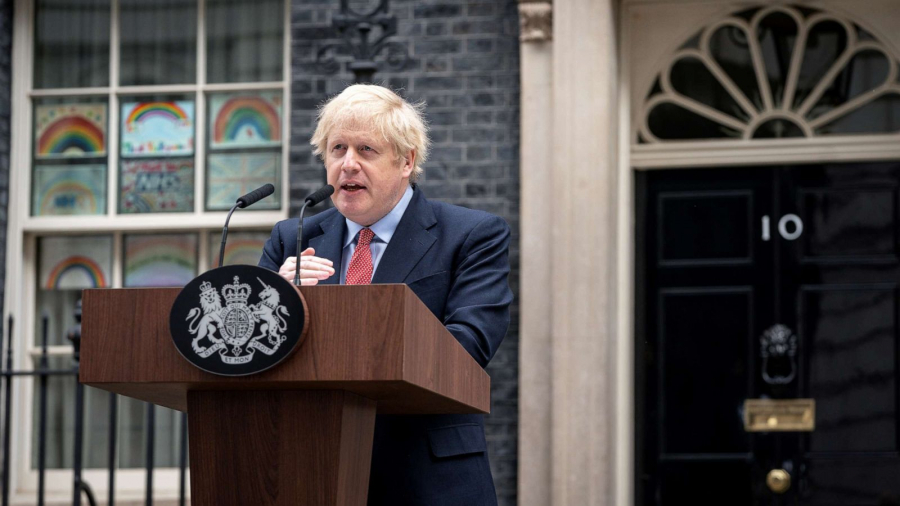
The British government has recently faced criticism from the opposition and businesses for its slow progress in easing economic and social lockdown measures.
In a recent poll of over 2,000 British citizens, 63% of respondents said the government was not acting quickly enough to prevent the spread of the disease.
France distributes 27 million face masks per week to its citizens.
According to French Deputy Finance Minister Agnes-Pannier Runacher, the shortage of face masks in the country has been largely resolved thanks to increased imports and boosted production.
Ms. Runacher aims to distribute at least 27 million masks per week to the public. These masks will clearly state the number of times they can be washed and reused. France is currently aiming to produce 20 million masks per week before the end of May, focusing on types needed for healthcare workers such as N95 masks.
Germany: Requires citizens to wear masks, does not support easing social distancing restrictions prematurely.
In Germany, each state sets its own local rules and regulations. However, as of April 27th, almost all citizens nationwide were required to wear face masks in public places to prevent the spread of Covid-19.
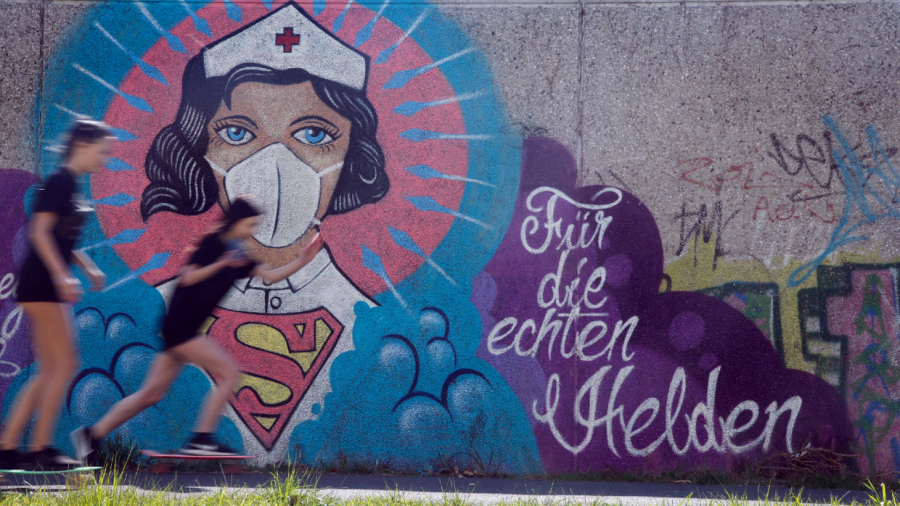
Also on April 27, a German government spokesperson stated that the Federal Government would not be discussing easing social distancing measures anytime soon, given the current Covid-19 pandemic.
According to the spokesperson, holding discussions on the next steps later this month is “too early” to effectively assess the impact of the easing measures implemented so far.
The US President calls for consideration of reopening schools.
On April 27, US President Donald Trump urged several state governors to consider reopening schools for the remainder of the school year, as he said this was the wish of many Americans.

As of the morning of April 28, the US had recorded 1,010,507 cases of Covid-19.
President Trump's call comes as White House guidelines for reopening economic areas recommend that schools remain closed until each state meets criteria regarding the number of new reported cases and reinfections within at least 14 days.
Argentina has banned flights until the end of September.
On April 27, Argentina's National Civil Aviation Authority ordered airlines to stop selling all tickets to and from the country until the end of September. The ban also applies to domestic flights. The agency asserted that the ban is understandable and justified in response to Covid-19.
According to Reuters, several South American countries, such as Ecuador, Peru, and Colombia, have banned all commercial flights for the time being, but none have extended the ban as far as Argentina.
The number of COVID-19 cases in Africa has surpassed 33,000.
As of the morning of April 28, the total number of Covid-19 cases in Africa had reached 33,839, including 1,464 deaths. The disease has now appeared in 52 out of 55 countries on the continent.
Treatment efforts for those infected in African countries have also yielded some positive results, with over 10,500 people having fully recovered.
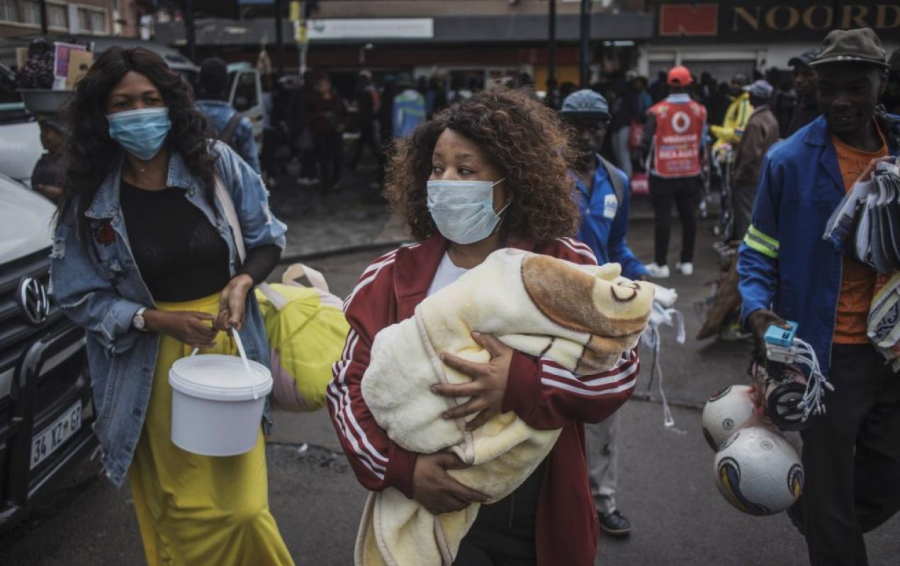
South Africa still has the highest number of infections in Africa.
WHO: The pandemic disrupted normal health services.
Speaking at a press conference late on April 27, WHO Director-General Tedros Adhanom Ghebreyesus expressed concern that the Covid-19 pandemic "is far from over" and is disrupting other normal health services.
Dr. Tedros believes the world can prevent a second wave of the pandemic with the right actions. However, he also worries that the disease is leaving children most vulnerable. Although the rates of COVID-19 infection and death among children are very low, the pandemic has disrupted routine vaccination programs.
"That puts them at a higher risk of dying from diseases that are preventable with vaccines," Tedros argued.

 VI
VI EN
EN



